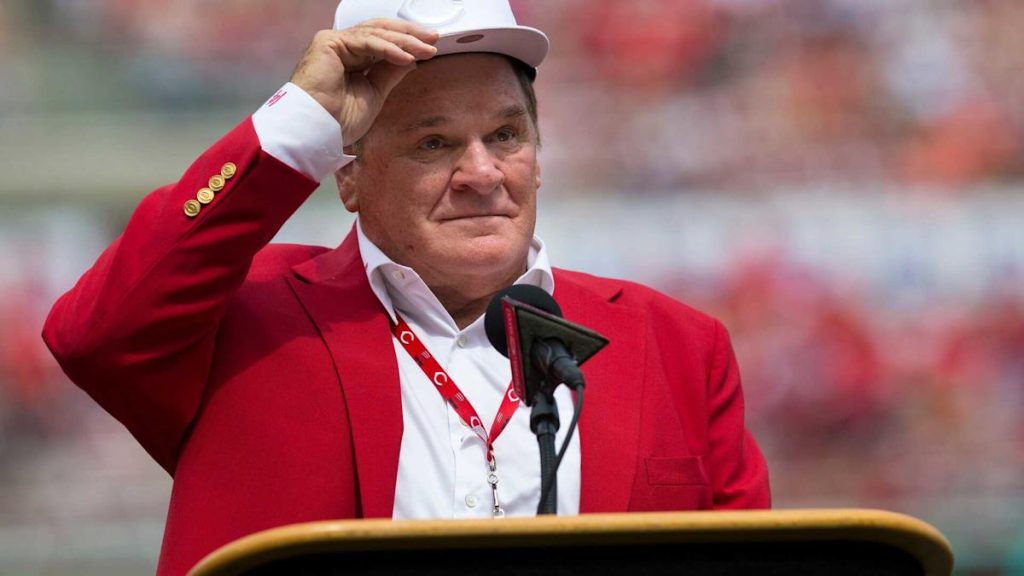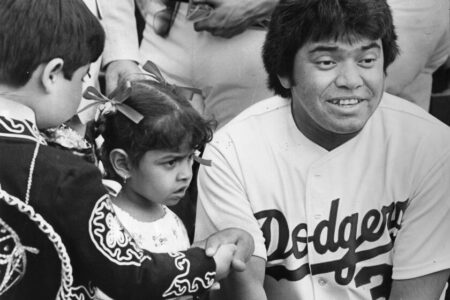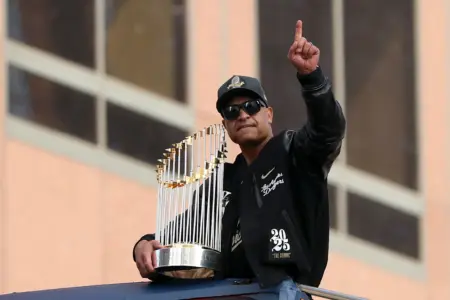Pete Rose Posthumously Seeks Ineligibility Reversal
Baseball Commissioner Rob Manfred is currently deliberating on a petition that could see the posthumous reversal of Pete Rose’s lifetime ban from Major League Baseball (MLB). This petition, filed by Jeffrey Lenkov, a Southern California lawyer who previously represented Rose, seeks to have Rose removed from the ineligible list, allowing his family to pursue his induction into the National Baseball Hall of Fame, a lifelong ambition that Rose held dear. Lenkov attended a meeting with Rose’s daughter, Fawn, Commissioner Manfred, and MLB executive Pat Courtney in the commissioner’s office on December 17, 2023, where the case was discussed in detail. The petition itself was filed just a few weeks later, on January 8, 2024. Lenkov, who has been tight-lipped about the details, was approached for comment by the Associated Press, but at the time of writing, he has not responded.
The Legacy of Pete Rose
Pete Rose, affectionately known as "Charlie Hustle," was a star in every sense of the word. His 23-year career in MLB saw him achieve an unprecedented 17 All-Star selections, and he stands as the all-time leader in hits with an astounding 4,256. Rose also holds records for the most games played (3,562) and plate appearances (15,890). In 1973, he was named the National League Most Valuable Player (MVP), and his contributions to the game were further highlighted by his participation in three World Series championship teams. Despite his unparalleled statistical achievements, Rose’s legacy has been marred by a controversial decision and subsequent investigation that led to his permanent ban from baseball.
The Fall from Grace
In 1989, Rose’s career came to an abrupt and scandalous end when an investigation led by lawyer John M. Dowd revealed that he had placed numerous bets on the Cincinnati Reds during his tenure as both a player and manager from 1985 to 1987. Rose agreed to a lifetime ban from MLB to avoid further scrutiny, which effectively barred him from all official activities and honors associated with the sport, including induction into the National Baseball Hall of Fame. The Hall’s board of directors adopted a rule in 1991 that explicitly prevents individuals on the permanently ineligible list from being considered for election. This rule has stood as an impenetrable barrier, keeping Rose’s name off the hallowed halls of Cooperstown despite his on-field achievements.
Prior Attempts at Reinstatement
Rose has not been entirely passive in his quest for reinstatement. In 1997, he formally applied to have his ban lifted, and in November 2002, he met with then-Commissioner Bud Selig to make his case. However, Selig never provided a ruling on Rose’s request, leaving the issue unresolved. In 2015, Manfred reviewed a subsequent application and ultimately denied Rose’s reinstatement, citing the MLB’s zero-tolerance policy on gambling within the sport. These repeated rejections have only fueled the debate surrounding Rose’s eligibility and have kept the issue in the public eye for decades.
The Role of Advocates and Public Opinion
Jeffrey Lenkov, Rose’s legal representative, has been a tireless advocate for his client’s legacy. At the December 17 meeting, Lenkov described Manfred as respectful and engaged, indicating a serious consideration of the petition. The meeting lasted for an hour, and while no immediate decisions were made, the discussions were considered productive. Lenkov’s goal is clear: to have Rose’s name cleared so that his family can pursue his induction into the Hall of Fame, honoring his lasting impact on the game. Public opinion on Rose’s reinstatement remains divided, with some staunchly supporting his return and others maintaining that the ban was justly imposed and should remain in place.
Presidential Pardon and Future Prospects
Adding another layer to this complex narrative is a recent statement from President Donald Trump. On Truth Social, Trump posted his intention to issue a "complete PARDON of Pete Rose," noting that while Rose’s gambling on baseball was wrong, his bets were only on his own team’s success. Trump also alluded to Rose’s tax case, in which he pleaded guilty to two counts of filing false tax returns in 1990 and served a five-month prison sentence. The president stated that he would sign the pardon "over the next few weeks," a move that could potentially open the door for Rose’s family to achieve their goal. While the impact of a presidential pardon on MLB’s internal policies remains to be seen, it undoubtedly adds a significant political dimension to the ongoing debate. As the baseball community and its fans await Manfred’s decision, the possibility of a posthumous reinstatement and Hall of Fame induction continues to captivate and divide opinions.











